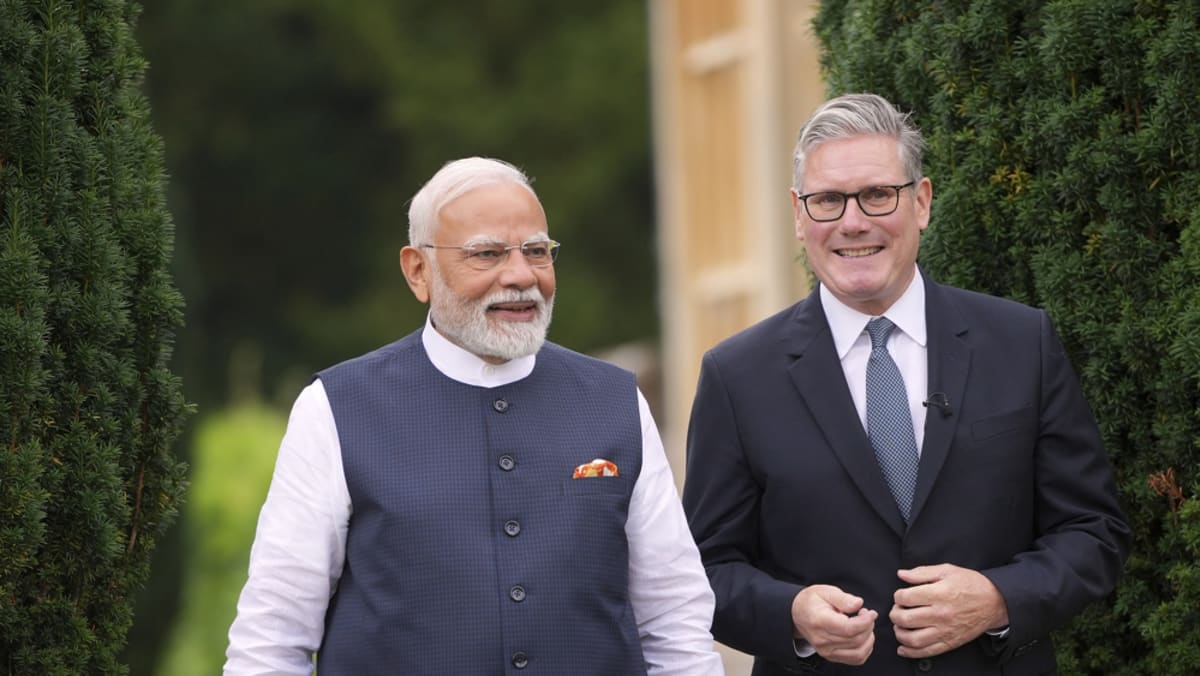LONDON: Britain and India signed a free trade agreement on Thursday (Jul 24) during Indian Prime Minister Narendra Modi’s visit, marking the UK’s biggest post-Brexit trade deal and India’s most significant partnership with an advanced economy.
The pact cuts tariffs on goods ranging from whisky to cars and textiles, and expands market access for businesses. The agreement aims to boost bilateral trade by £25.5 billion (US$34 billion) by 2040.
Negotiations concluded in May after three years of on-and-off talks, accelerated in recent months by global economic uncertainty and tariff pressures triggered by US President Donald Trump.
‘BLUEPRINT FOR SHARED PROSPERITY’
British Prime Minister Keir Starmer, hosting Modi at his Chequers residence, said the deal would make trade “cheaper, quicker and easier” between the two nations.
“We’ve entered a new global era, and that is one that requires us to step up, not to stand aside… by building deeper partnerships and alliances,” Starmer said.
Modi described the agreement as “a blueprint for our shared prosperity,” noting that Indian goods such as textiles, jewellery, and seafood would gain improved access to the UK market.
The agreement will take effect following a ratification process expected within the year. Under the terms, 99 per cent of Indian exports to Britain will benefit from zero duties, while the average tariff faced by UK firms will drop to 3 per cent from 15 per cent.
WHISKY, CARS AND SERVICES
Tariffs on Scotch whisky will fall from 150 per cent to 75 per cent immediately, and will gradually reduce to 40 per cent over the next 10 years. Duties on brandy and rum will drop to 110 per cent and then to 75 per cent.
India will also lower tariffs on cars to 10 per cent within five years under a quota system that will be gradually liberalised. In return, Indian electric and hybrid vehicles will gain access to the UK market under a similar quota system.
While the deal is significant, its projected impact on the UK economy is modest. Britain’s Office for Budget Responsibility (OBR) forecasts the deal will add £4.8 billion a year to GDP by 2040, small compared to Britain’s 2024 GDP of £2.6 trillion.
The OBR has also predicted UK trade will remain about 15 per cent lower in the long term compared to pre-Brexit levels.
